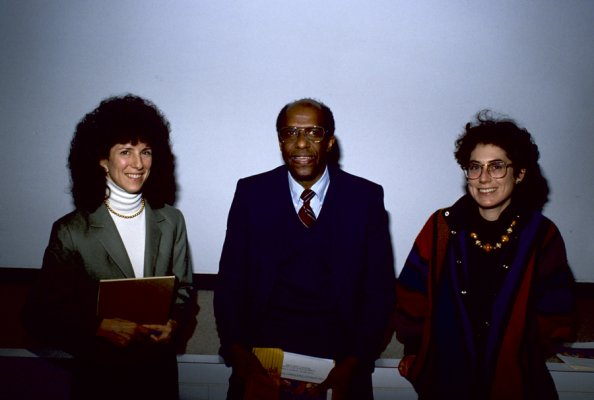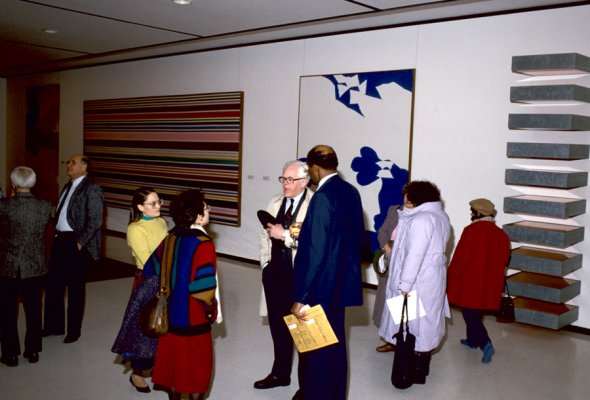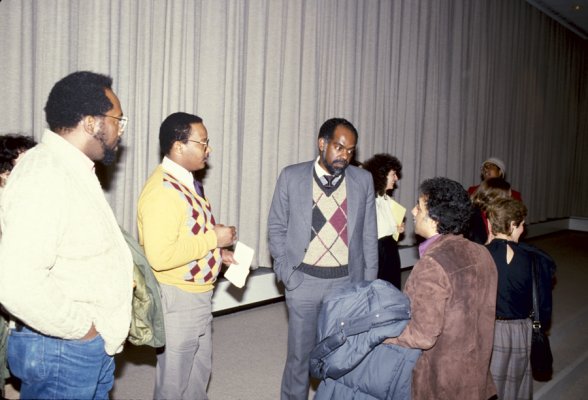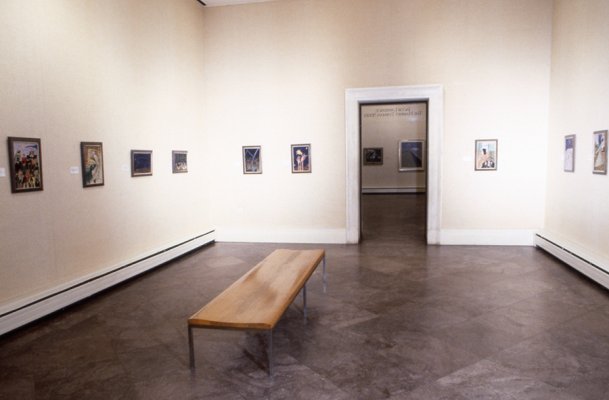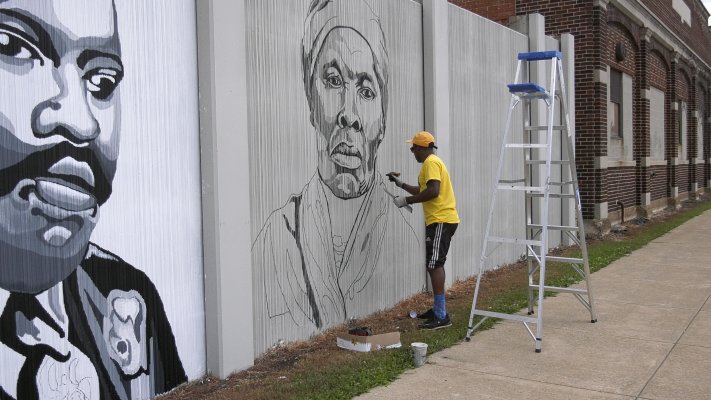On Wednesday, February 12, 1986, Dr. Monroe Fordham, Chairman of the History and Social Studies Department at Buffalo State College, gave a talk on “The Afro-American Diaspora: Harriet Tubman, ‘Moses of Her People’” in the Albright-Knox Auditorium.
Dr. Fordham highlighted Tubman’s activities both before and after the Civil War. Following the conflict, Tubman dedicated herself to caring for poor and elderly African Americans, initially out of her home and farm in Auburn, New York, and eventually in the purpose-built Harriet Tubman Home for the Aged. The lecture was presented in celebration of Black History Month and the special exhibition Jacob Lawrence: The Harriet Tubman Series, which ran from January 18 through March 2, 1986.
Earlier this year, both Dr. Fordham and Tubman were selected as subjects for The Freedom Wall in recognition of their contribution to the work of civil rights and human rights both locally and nationally. On Sunday, September 17, join us to celebrate The Freedom Wall with the artists—John Baker, Julia Bottoms-Douglas, Chuck Tingley, and Edreys Wajed—and the community. Learn more
